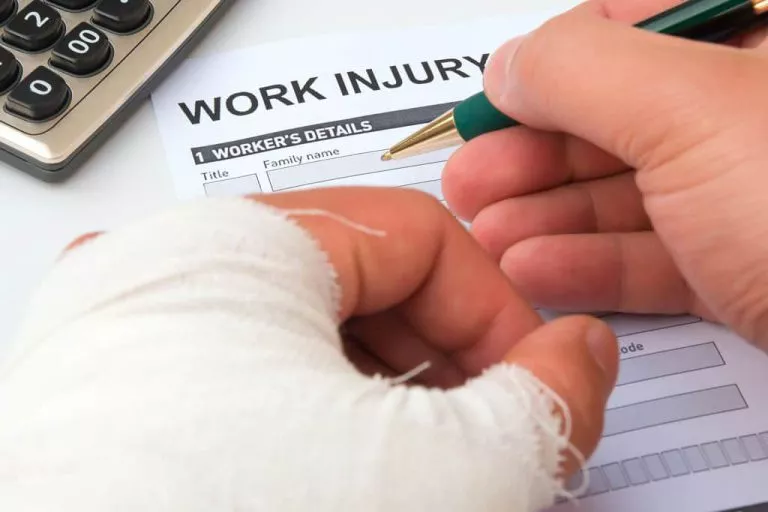Generally, employers have a duty to provide a safe work environment for their employees. However, work accidents happen even under the best of circumstances. A worker may be injured while following all safety precautions.
For example, the Pennsylvania workers’ compensation system provides a remedy for workers injured on the job. Injured workers may receive medical treatment and a portion of lost wages after a work injury, but this depends on each State.
In return, the worker gives up the right to sue the employer for personal injury damages. The system ensures that the injured worker receives the care and support necessary for them to heal and return to the workforce.
Workers’ compensation is a no-fault insurance system. A worker does not need to prove the employer was negligent to receive benefits. Likewise, a worker who is partially to blame for the cause of their injury may still receive workers’ comp benefits.
Is Workers’ Compensation Mandatory in Pennsylvania?
Workers’ compensation requirements apply to employers with at least one employee who could be injured or develop a work-related illness. The employer must have workers’ compensation coverage under the Workers’ Compensation Act.
Most companies purchase workers’ compensation insurance coverage from private insurance companies. There is also the State Workers’ Compensation Insurance Fund. It is a state-run worker’s compensation insurance carrier.
Some large employers may qualify to be self-insured. However, they must obtain approval from the Bureau of Workers’ Compensation to be self-insured.
Employer Requirements and Obligations Under the Pennsylvania Workers’ Compensation System
In addition to providing workers’ compensation insurance coverage, employers in Pennsylvania must:
Notify Employees of Workers’ Compensation Rights
An employer must provide notice to employees that describe a worker’s rights after a work-related injury. The notices must be placed in common areas where employees have access. In addition, new employees should be given a written statement of their rights.
Notices must contain the name and contact information of the employer’s workers’ compensation insurance company. The company must also provide a list of at least six physicians approved to treat injured workers. Workers may choose any doctor on the approved list for treatment.
Employers also have a responsibility to explain what employees should do if they are injured on the job. Employers must also notify employees about the rules and procedures for filing workers’ compensation claims.
Provide Emergency Medical Care for Injured Workers
Employers have a responsibility to assist workers in obtaining emergency medical care after a work injury.
An employer should call for appropriate emergency medical services after a work accident. In addition, the employer must provide necessary and reasonable follow-up care without restriction. Injured employees may seek care from any medical provider in an emergency.
Notify the Insurance Provider
An employer must notify its workers’ compensation insurance carrier of a work-related injury. The notification should occur within one workday of being informed an employee sustained an injury.
Provide Employees with Claims Forms
The employer should provide an injured worker with forms to file a claim within one workday. The employer should also provide the injured worker with written instructions about filing a workers’ comp claim.
What Happens if an Employer Does Not Have Workers’ Compensation Coverage in Pennsylvania?
Employers could face numerous penalties if they do not have workers’ comp coverage. Uninsured employers may be required to reimburse the Uninsured Employers Guaranty Fund for any monies paid for a claim. The reimbursement may include:
- Actual claim costs
- Fees
- Interest
- Penalties
- Attorney fees
The Pennsylvania Department of Labor & Industry may prosecute an uninsured employer for criminal charges. Uninsured employers could be charged with fines and face imprisonment.
Employees may use uninsured employers for damages under tort law. The injured worker may receive compensation in excess of what the worker would receive as workers’ comp benefits. Compensation for a tort claim may include:
- The cost of medical treatment and medical expenses
- The expenses for long-term nursing or personal care
- All loss of income, including past and future lost wages and diminished earning capacity
- Out-of-pocket expenses and costs
- Pain and suffering caused by injuries
- Impairments, disabilities, scarring, and disfigurement
- Suffering caused by mental anguish and emotional distress
- Loss of enjoyment of life
- Diminished quality of life
Can the Injured Worker Seek Legal Counsel?
An injured worker has the right to seek legal counsel after a work accident. The injured worker may hire a lawyer to assist the worker in filing a workers’ compensation claim. In addition, the lawyer may assist the worker in filing a personal injury lawsuit against an uninsured employer. Lawyers also assist injured employees when employers fail in any responsibility owed to the worker.

